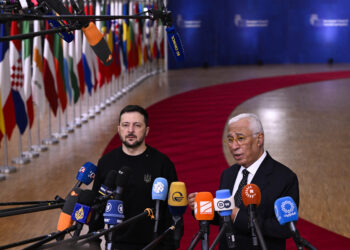Brussels – Ukraine remains high on the agenda of EU leaders, who try to show unity ahead of Trump’s inauguration in the White House. Meeting in Brussels for the last European Council of the year, the Twenty-Seven heads of state and government spent the entire morning discussing how to continue to support Kyiv “for as long as necessary.” Zelensky continues to call for new weapons and solid security guarantees from NATO, but the main unknown remains precisely the intentions of the next US president.
European leaders gathered today (Dec. 19) for the last time this 2024 at the Europa Palace – and for the first time under the leadership of António Costa – want to send “a strong message of support for Kyiv” with Ukrainian President Volodymyr Zelensky joining them for the occasion. There were no particularly disruptive decisions in today’s session, with the line of continuity prevailing while waiting for the next US president to explain how he intends to break the impasse on the ground.
So, in the conclusions regarding Ukraine, the European Council reiterated the unwavering commitment to supporting the aggrieved country “as long as it takes and as intensely as needed” and the willingness to achieve a “comprehensive, just, and lasting peace” based on the key principle that “no initiative concerning Ukraine be taken without Ukraine.”
Peace, but not at any cost
Peace, however, should not be rushed: “Any push for negotiations too soon will actually be a bad deal for Ukraine,” is the warning of EU diplomacy chief Kaja Kallas. NATO Secretary General Mark Rutte echoed this sentiment last night on the sidelines of a meeting with Zelensky and Italian PM Giorgia Meloni, among others. The focus is to ensure that “the President and his team, Ukraine, are in the best possible position the day they decide to start peace talks.”
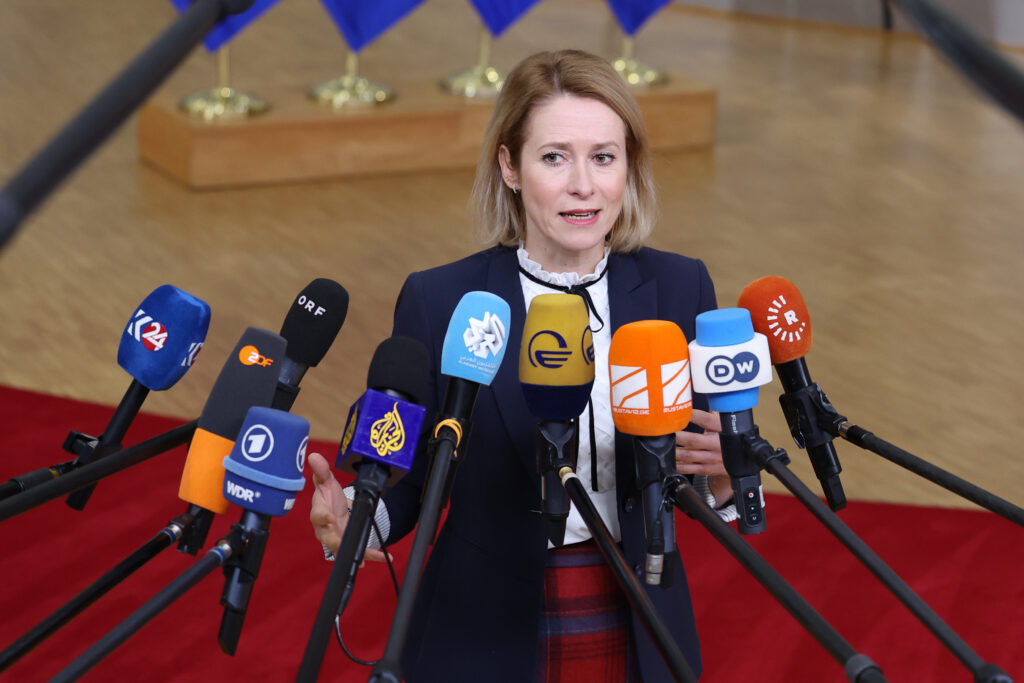
Lithuanian President Gitanas Nauseda agreed. “If we try to extract something out of this situation,” without providing the Ukrainians with what they are asking, all we can achieve is “an unjust and unsustainable peace” for Kyiv. “We must do everything in our power to support Ukraine, and make it strong and, only then, proceed to the negotiating table,” he continued, adding that, so far, “we are not keeping our promises.”
Military Support
The European Council also called for the “urgent stepping up of efforts” to ensure that Kyiv is provided with the necessary military support, “in particular on the delivery of air defense systems, ammunition, and missiles, as well as the provision of the necessary training and equipment to Ukrainian brigades.”
Zelensky said that at least 19 anti-aircraft batteries are needed to protect the country’s energy infrastructure from enemy bombing. EU leaders also emphasized the need to “support and develop further the Ukrainian defense industry and deepen cooperation” with the 27 member states in the defense sector. Meanwhile, the EUMAM military assistance mission, which trains Ukrainian soldiers in NATO combat techniques, is ongoing.
Financial support
Another significant point in the conclusions concerns the pledge of European chancelleries to support Kyiv financially. While the European Peace Facility (EPF) remains blocked due to vetoes in Budapest, in the year that is now closing, total payments to Ukraine under the Facility will amount to about 16.2 billion.
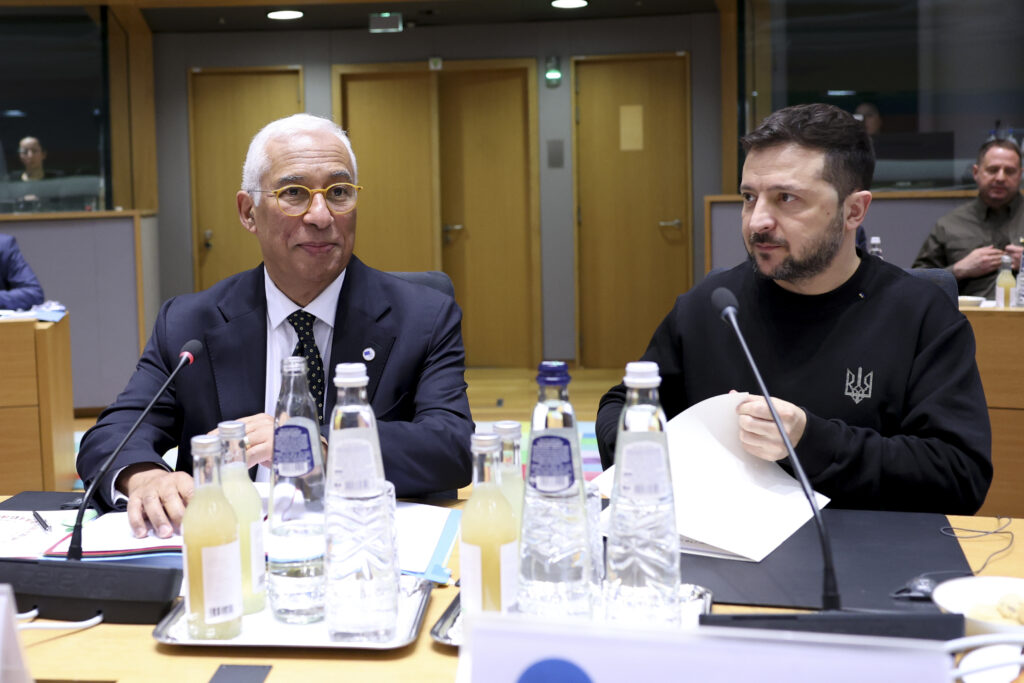
In 2025, disbursements from the Facility should reach 12.5 billion. In addition, 18.1 billion are planned under the G7 loan (ERA) agreed last summer, which should result in a total of 45 billion collected from extra-profits of frozen Russian assets ending up in Kyiv’s coffers. These assets, the text of the conclusions reads, “should remain immobilized until Russia ceases its war of aggression against Ukraine and compensates it for the damage caused by this war,” although the issue remains legally sensitive.
Additional funding, presumably in significant amounts, will then need to be provided after hostilities end, during the reconstruction phase of the country ravaged by war, which, in a couple of months, will enter its third year. The European Council emphasized that the Ukraine Recovery Conference, to be held in Rome July 10-11, 2025, “will be important in this context,” namely to mobilize an adequate flow of capital toward the former Soviet republic.
Security Guarantees
A key issue, raised for the umpteenth time by the Ukrainian president during a press conference on the sidelines of the European Council, is the security guarantees demanded by Kyiv from its Western allies. Zelensky admitted that he could not “discuss it publicly” because “there is no decision yet,” but said that “there is some political will and total understanding that Putin is dangerous and will not stop.”
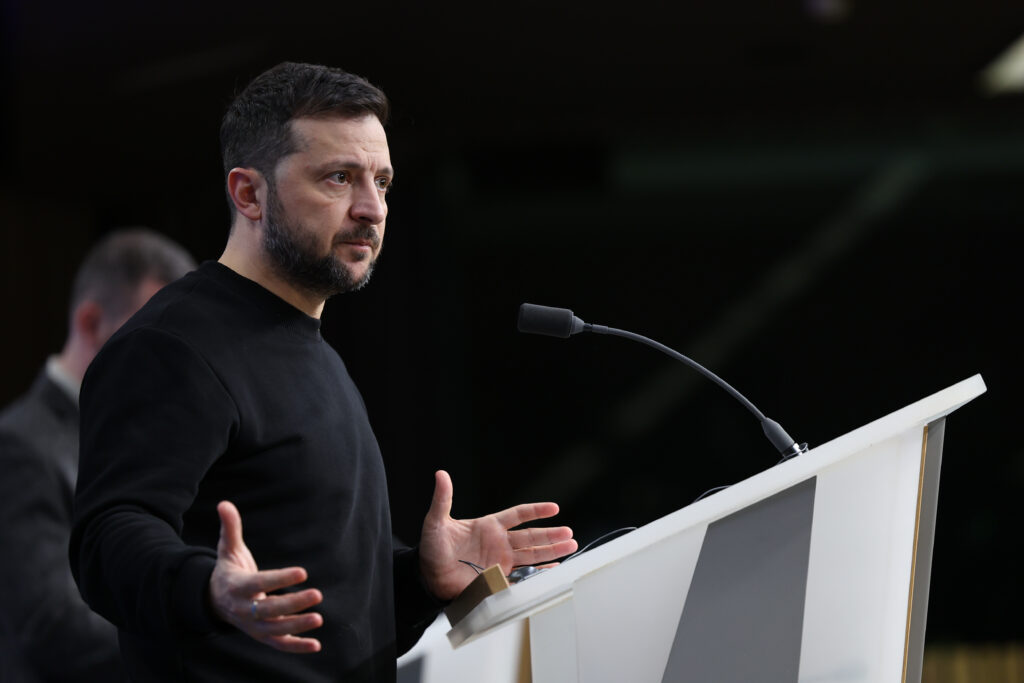
The reasoning is sound. “We want to end the war. We want peace,” the Ukrainian leader insisted, “but we must have security guarantees that will help protect us tomorrow.” Hastily entering into a ceasefire without a clear roadmap of what will happen next is the best way, he says, not to achieve peace but to “freeze the conflict” and give Russian President Vladimir Putin (called a “madman”) time to reorganize and attack again “in six months, a year, two years.”
However, one thing is clear about this point. “I believe that European security guarantees will not be sufficient for Ukraine,” Zelensky said, repeating a concept he already expressed in past months: “For us, the real guarantee, now or in the future, is NATO, and NATO depends on decisions made by Europeans and Americans.” Therefore, it will be crucial to understand how the newly elected US president, Donald Trump, will want to move. In his election campaign, he boasted that he could resolve the conflict in 24 hours. For the Ukrainian head of state, “Trump is a strong man, and it is very important to have him on our side” so that “he can help us stop the war.” “I count on having time to talk, think, and listen to his vision and show him ours,” he explained to reporters because “it is very difficult to support Ukraine without US help.”
The Trojan Horses of the Kremlin
The strength of Kyiv’s allies, Zelensky emphasized, lies in their unity across the Atlantic: “Europe and America can push the war to an end,” he said, stressing that “for the US to exert full pressure” on the Kremlin, the UK must also be involved. Meanwhile, on the other side of the Channel, the EU must reach “a clear position” and achieve unity among its member states.
However, complete alignment among the 27 member states looks like a pipe dream, not only on issues directly concerning the war in Ukraine but all those having to do with Moscow, such as sanctions against the Georgian government, which Hungary’s Viktor Orbán and Slovakia’s Robert Fico blocked on Dec. 16. Zelensky had some sharp words for both today. He called “not very serious” the proposal for a Christmas truce with an accompanying prisoner exchange put forward by the Hungarian premier, accusing the strongman in Budapest of having no “mandate to negotiate” such a ceasefire because “his relations with Putin are a bit too cordial.”
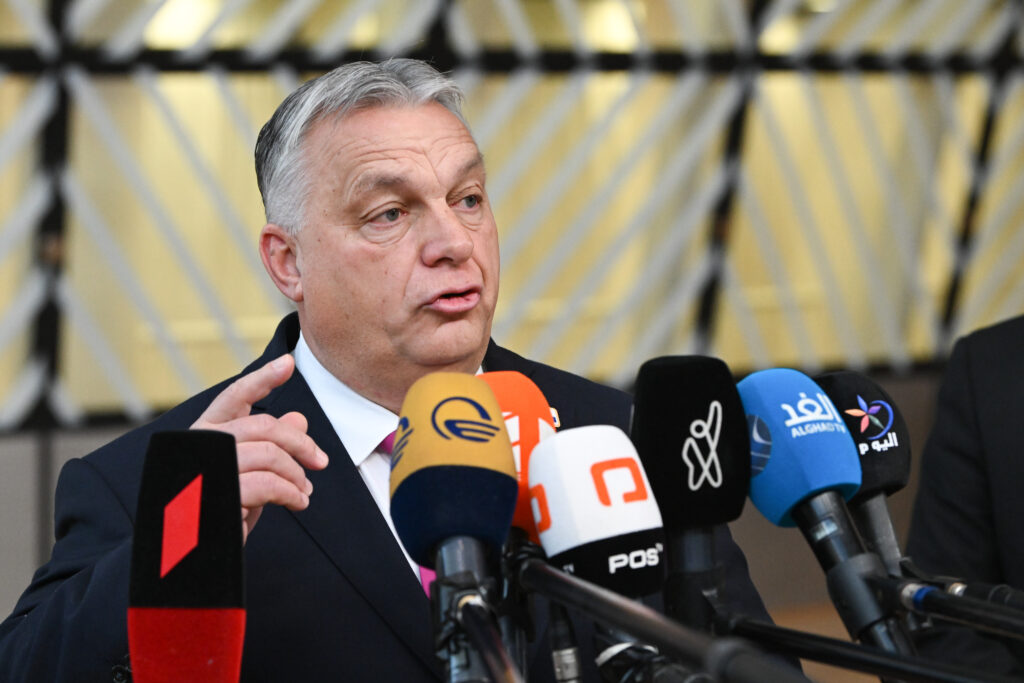
About the imminent halt of Russian gas supplies via Ukraine when contracts with Gazprom expire on Dec. 31, lamented by the Slovak prime minister, Zelensky noted that “it is a bit shameful to talk about money” while Ukraine is under attack. “We will not extend Russian gas transit” on Ukrainian territory, he added, so as not to give Moscow “the opportunity to earn additional billions at the expense of our blood.” After all, in the last few hours, Fico reiterated that Bratislava does not plan to endorse Kyiv’s membership in NATO.
English version by the Translation Service of Withub
